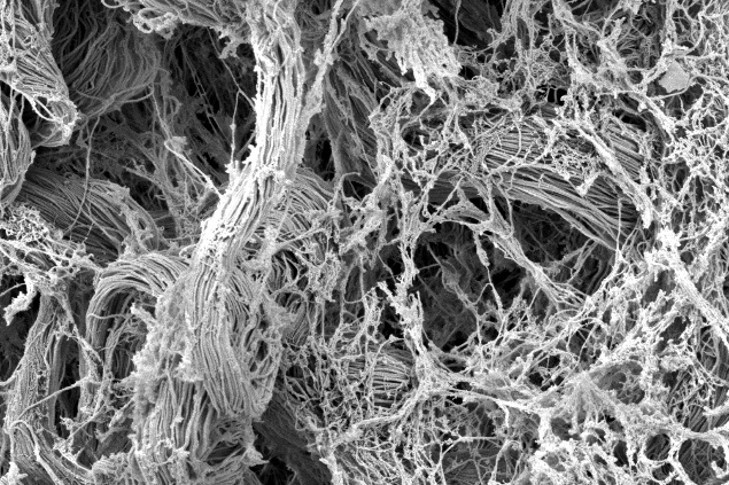GEM COVID-19 Rapid Response Projects
News Articles
- IEM and ACTRI Announce The Rapid Response GEM Challenge - Covid-19
- IEM Covid-19 GEM Rapid Response Challenge awardee receives CIRM Research Discovery Award
- eCOVID platform provides remote patient monitoring
- Nanosponges Mop up Viruses to Treat COVID Infections
- San Diego is Embracing Corona-Virus Combating Tech
- Dispatches from a pandemic: graduate students create COVID virus simulations
- IEM Scientists developing 3D lung model organoids to help research COVID-19
- UC San Diego engineers and doctors team up to retrofit and 3-D print ventilators.
GEM COVID-19 Rapid Response Projects
A group of UCSD researchers and engineers have teamed to help address the mental well being of overloaded and stressed clinicians in the current pandemic. The team of Asst Professor Jyoti Mishra (Psychiatry), Associate Clinical Professor Steve Koh (Psychiatry), Asst Professor Dhakshi Ramanathan (Psychiatry) and Professor Sujit Dey (Elec & Computer Eng) have been awarded a GEM Rapid Response Seed Grant by IEM for their ongoing work in developing a smartphone app to track clinician health data and mood assessments. Together, implementing personalized statistics and machine learning models can help monitor a large number of clinicians and potentially assist those in need before a point of crises is reached. To learn more about this this research follow these links:
NEATLabs, UCSD Community Psychiatry &
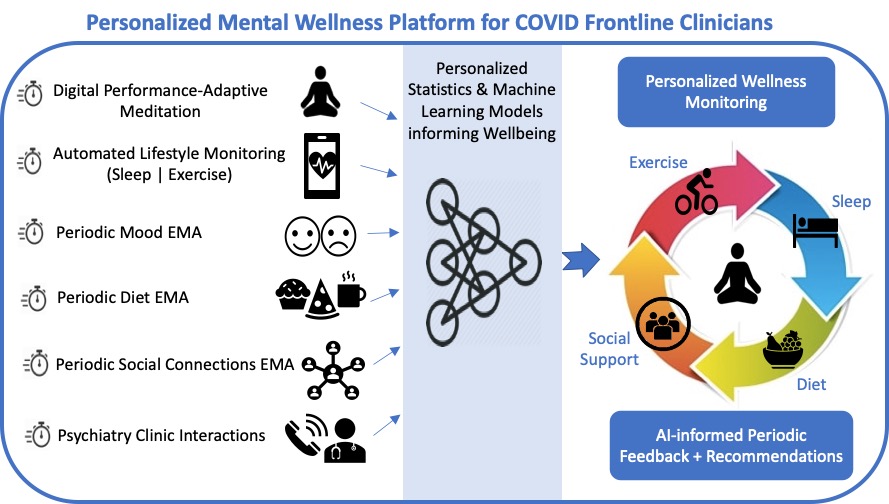
Hoping to address the unprecedented pressures on medical system personnel and facilities during the COVID-19 pandemic, a group of UCSD physicians and engineers have teamed together with concerned collaborators from all walks of life to test deploy their Medical Electronic Command Center (MedECC). The team of PhD candidate Michael Barrow (Computer Science), Resident Physician Shanglei Liu (Surgery), Professor Sonia Ramamoorthy (Surgery) and Professor Ryan Kastner (Computer Science) having completed a proof of concept of their telemedicine platform, which allows doctors to triage care and remotely monitor patients, are hoping to both improve patient care efficiency in crisis settings and reduce exposure to critical health care workers. Learn more about this important research here.

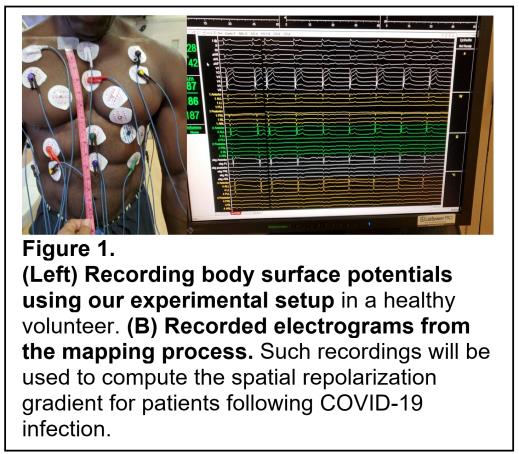
A group of UCSD Physicians and Engineers are working together to implement a rapid, inexpensive, and non-invasive screening tool to assess individual risk for ventricular arrhythmia following COVID-19 infection. The team, Professor David Krummen (Medicine), Professor Jeff Omens (Bioengineering), Associate Professor Kurt Hoffmayer (Medicine), and Assistant Professor Gordon Ho (Medicine) hope to more accurately identify patients at risk of cardiac arrhythmias following COVID-19 infection. Additionally, the technology may reduce the risks of certain medications which alter the heart's electrical activity, enhance arrhythmia screening in patients with inherited cardiomyopathies, and improve the risk evaluation for patients who fall outside current guidelines for ICD therapy. Learn more about the principal investigators and their laboratories' novel research here: Jeff Owens and David Krummen.
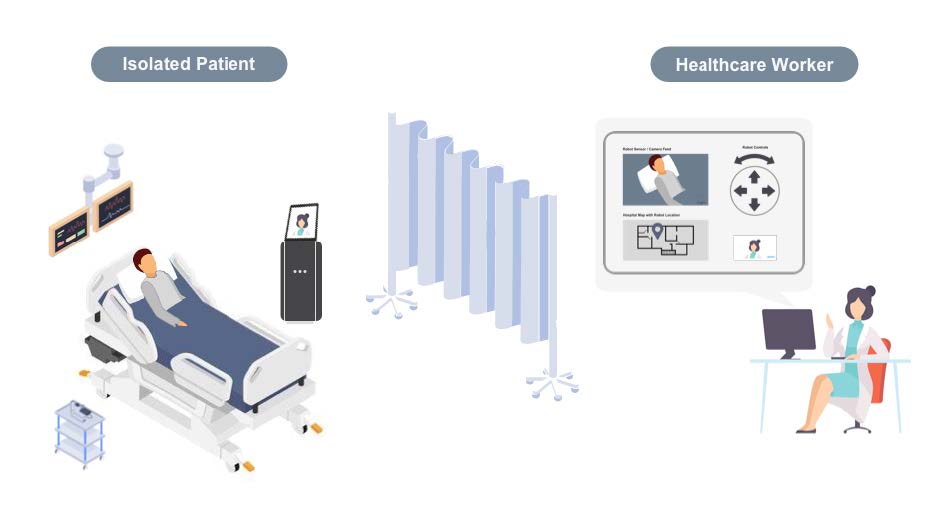 The COVID-19 pandemic has created unprecedented challenges for hospitals, patients, and healthcare workers–but a team of researchers from UC San Diego is here to help. Professors Laurel Riek (Computer Science & Engineering), Leslie Oyama (Emergency Medicine), Alan Card (Pediatrics), along with Lesley Wilson (UCSD Health’s Associate Chief Experience Officer) will design, deploy, and evaluate a new fleet of low-cost telepresence robots to 1) Help clinicians provide better and safer care to patients who may have COVID-19, and 2) Enable families to see and communicate with their loved ones in the hospital. The research team will test the impact of the robot on the quality and safety of care, patient well-being, and healthcare worker well-being. To learn more about this important research, click here. Vision of the team's low-cost, mobile tele-health system. Left: A patient in isolation receives a tele-visit from a healthcare worker via a mobile robot. Right: The healthcare worker remotely controls the robot and conducts the visit. (Credit: Sanika Moharana, UCSD Healthcare Robotics Lab).
The COVID-19 pandemic has created unprecedented challenges for hospitals, patients, and healthcare workers–but a team of researchers from UC San Diego is here to help. Professors Laurel Riek (Computer Science & Engineering), Leslie Oyama (Emergency Medicine), Alan Card (Pediatrics), along with Lesley Wilson (UCSD Health’s Associate Chief Experience Officer) will design, deploy, and evaluate a new fleet of low-cost telepresence robots to 1) Help clinicians provide better and safer care to patients who may have COVID-19, and 2) Enable families to see and communicate with their loved ones in the hospital. The research team will test the impact of the robot on the quality and safety of care, patient well-being, and healthcare worker well-being. To learn more about this important research, click here. Vision of the team's low-cost, mobile tele-health system. Left: A patient in isolation receives a tele-visit from a healthcare worker via a mobile robot. Right: The healthcare worker remotely controls the robot and conducts the visit. (Credit: Sanika Moharana, UCSD Healthcare Robotics Lab).
IEM researcher, Assistant Professor Stephanie Fraley (Bioengineering) is working with a UCSD and IGE (Institute for the Global Entrepeneur) affiliated start-up company, Meliolabs at commercializing a rapid, universal diagnostic for coronaviruses to help detect known and emerging versions. Meliolabs was co-founded by Dr. Fraley and UCSD graduate Dr. Mridu Sinha. The company, using technology developed in Dr. Fraley's lab, aims to have onsite validation studies in collaboration with the UCSD Clinical Microbiology lab. Learn more about Dr. Fraley’s research here.
A team of engineers and physicians at UC San Diego have been awarded a GEM Rapid Response Challenge Seed Grant by IEM to help address the need for administering therapeutics that could dampen and treat the overreactive inflammatory response caused by COVID-19 to reduce patient mortality and improve recovery. Professor Karen Christman, PhD (Bioengineering) will continue to work with her pioneering immunomodulatory extracellular matrix (ECM) hydrogels with the critical care translational research expertise of Dr. Mark Hepokoski. The (ECM) hydrogels have proven effective in promoting tissue repair in myocardial infarction patients. The hope is that these hydrogel biomaterials can prove an effective therapeutic in treating lung and systemic inflammation associated with COVID-19.
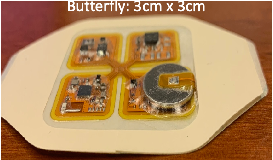
IEM announces a GEM Rapid Response Challenge Seed Grant has been awarded to a team of UCSD physicians and engineers. Associate Professor Dr. Robert Owens (Medicine) and Professor Todd Coleman (Bioengineering) have developed and begun testing an ultra-thin, flexible and disposable wearable sensor for vitals tracking of positive Covid-19 patients. The hope is to reduce risk to health care workers, reduce risk of disease transmission and allow for efficient resource allocation to determine optimal care strategies for Covid-19 individuals. The device is already being tested with IRB approval in adults at UCSD and in parallel with IRB approval at the Neonatal Intensive Care Unit at UCSF.
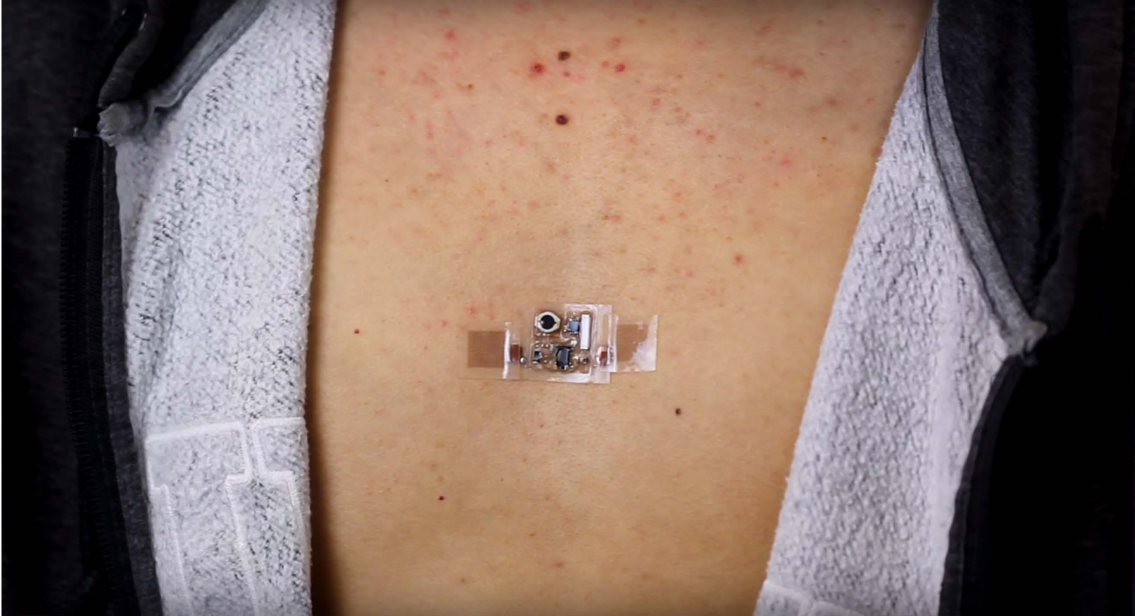
A team of UCSD physicians and engineers have been awarded a GEM Rapid Response Challenge Seed Grant by IEM to introduce a customized wearable wireless multimodal sensor capable of continuous and remote monitoring of Covid-19 patients. Associate Professor Jinghong Li (Medicine) and Assistant Professor Sheng Xu (NanoEngineering) are developing a device which will be capable of acquiring five critical vital signs (BP, HR, RR, T and SpO2) important in signaling the early warning signs of “silent hypoxia” and saving lives. The aim is to simultaneously improve health care monitoring, reduce exposure to health care workers and preserve personal protective equipment.
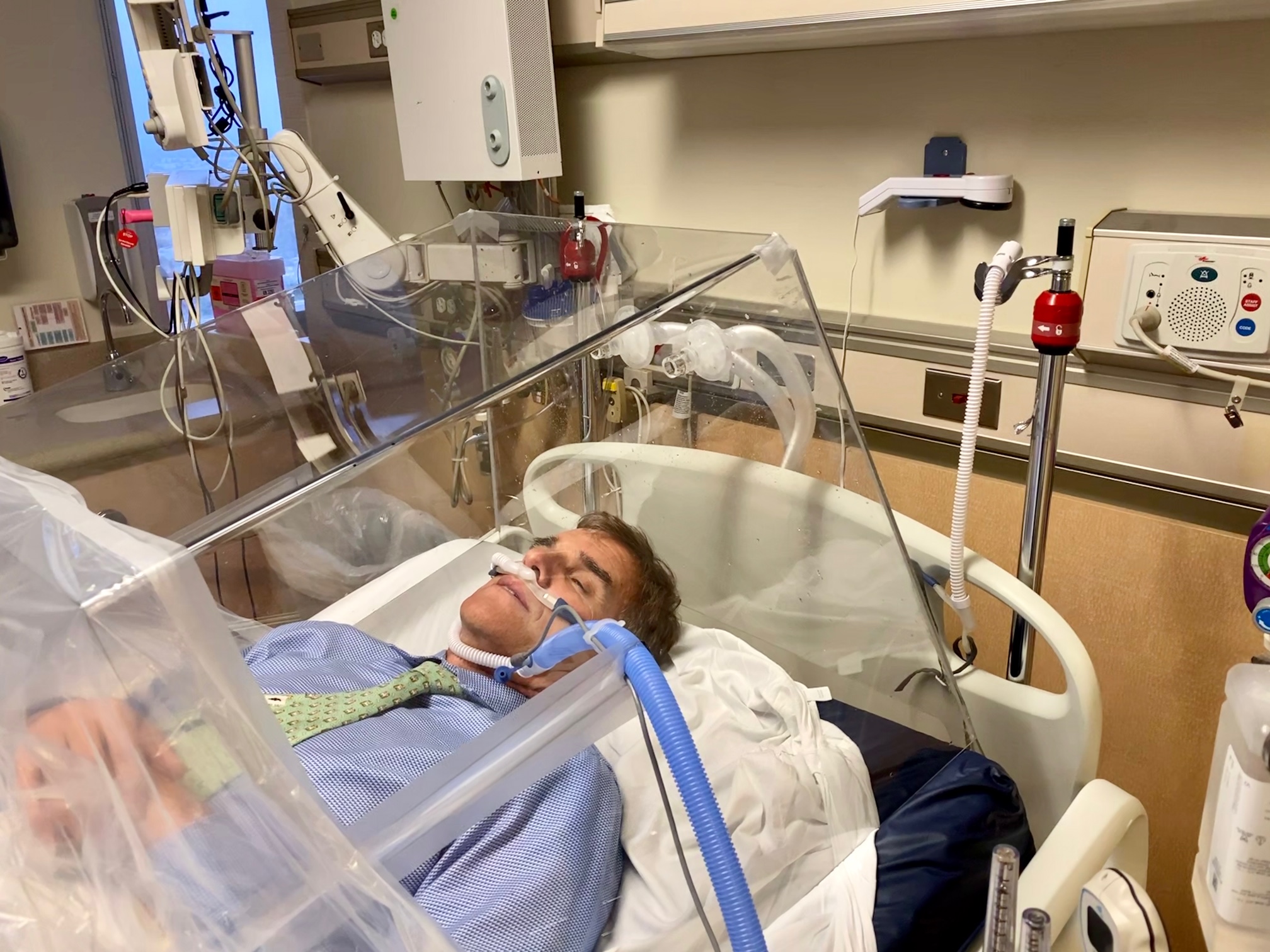
A team of engineers and physicians at UC San Diego have been awarded a GEM Rapid Response Challenge Seed Grant by IEM to address pressing healthcare problems caused by the Covid-19 pandemic. Professor James Friend (MAE) and Professor Timothy Morris (Medicine) have created a vacuum-exhausted isolation locker (VEIL) to allow patients to receive advanced respiratory therapies while avoiding intubation and mechanical ventilation helping to minimize exposure to health care workers.
